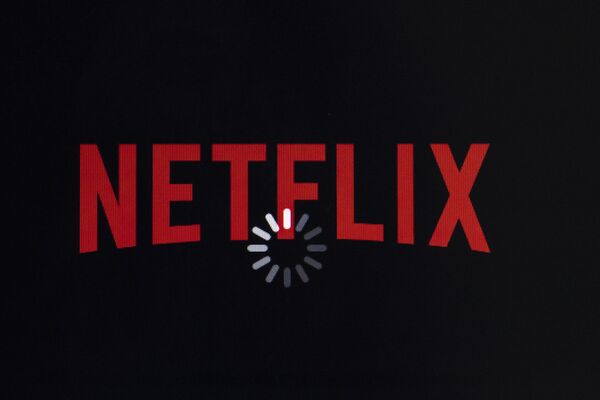As the orders put in place in the UK to curb the spread of the coronavirus pandemic have placed new pressures on the UK's mobile and broadband infrastructure, the country’s internet capacity could be "rationed" to prioritize critical apps and websites, experts are cited as saying by The Sun.
Social distancing measures, enforced to deal with the pandemic, mean that many Brits are now working from home in compliance with a UK government request, as all unnecessary travel has been halted and schools, cafes, leisure centres and other social venues also shut.
Amid the lockdown, Vodafone sources are cited by the outlet as confirming a 30 per cent increase in web traffic, with the typical peak “rush hour” registered previously between 6pm and 8pm now rapidly expanding to between noon and 9pm.
Experts warn "internet rationing" could eventually be signed off on, albeit not involving limiting users to specific amount of data.

The measures, claim cited sources, would most likely presuppose prioritising critical data over entertainment, like movie-streaming or gaming.
"In some cases it will be paramount to prioritise mission critical communications," expert analyst Paolo Pescatore, of PP Foresight, was quoted by the publication.
"In these uncertain times, users should consider having a backup connection whether that be another SIM or data only plan. This will help them tether to their other connected devices in the home," added Pescatore.
One of the concerns cited by networks is the traffic increasingly moving from cities into suburbs.
"You can imagine a huge amount of the UK bandwidth is focussed on cities not suburbs… The opposite is probably true for the cable companies (more suburbs than cities) but they are also not provisioned for this shift," Nigel Walley, a media analyst, is quoted by the outlet.
"Video is the bandwidth killer so the explosion in video conferencing (along with everyone watching more Netflix) is what is causing the drag on the network.”
How to Cope with Demand Spike
According to sources, a degree of internet rationing is already in progress to reduce network load, as content providers are reducing the bitrate of their videos.
Netflix, Google's YouTube, Facebook, Instagram, Apple TV+ and Disney+ are all cited as having reduced the quality of streams by around 25 per cent across the UK and Europe.
"People are coming to YouTube to find authoritative news, learning content and make connections during these uncertain times... While we have seen only a few usage peaks, we have measures in place to automatically adjust our system to use less network capacity. We are in ongoing conversations with the regulators (including Ofcom), governments and network operators all over Europe, and are making a commitment to temporarily default all traffic in the UK and the EU to Standard Definition,” a YouTube spokesperson was cited by The Sun.
Boosting broadband capacity is a means currently being employed by networks, as a source is cited as revealing that additional hardware is being added across the country, while mobile traffic can also be diverted to avoid areas being overloaded.
Networks can "traffic-manage" their systems, prioritising some traffic over others, claim experts.
Seeking to allay concerns of an overload, a UK network was cited as suggesting it was currently at 20 per cent "utilisation", with at least 80 per cent remaining to cope with handle any major uptick in usage.
Reducing individual internet connection wouldn't be necessary, believe experts, claiming that networks are designed to handle huge peaks of traffic.
"Our networks remain strong… We’ve enough headroom to meet growing demand and to keep the UK connected,” a Vodafone spokesperson was cited as saying.
Experts cited by the publication dismissed concerns the Government might enforce mass-rationing of the internet, claiming it would be "completely bonkers" and potentially “impossible to enforce”.

Sources suggest it will come down to content providers and ISPs, who will ration at their own discretion.
"We believe it will be left to the carriers and government will not play a role," says analyst Dan Ives.
Meanwhile, a spokesperson for the Government's Department for Digital, Media, Culture and Sport was quoted as stating:
"The Government is in regular contact with Ofcom and the major broadband and mobile operators to ensure that networks remain resilient. We understand the importance of having reliable access to the internet at this time, so people can work from home, access public services including health information, connect with friends and family and keep entertained."
The developments come as UK Prime Minister Boris Johnson made a televised statement on Monday evening to outline strict new measures to deal with the spread of the coronavirus, including a ban on public gatherings of more than two people.
Johnson also ordered immediate closure of shops selling non-essential goods.
Earlier measures in March included closing schools, urging social distancing protocols, and shutting down non-essential travel, among others.
The novel coronavirus, which causes the respiratory disease Covid-19, was first confirmed in the UK at the end of January, since rising to over 6,700 cases of the disease.
The number of deaths is now 336, according to the Johns Hopkins University in the US. Globally, authorities have confirmed more than 380,000 cases of the coronavirus with more than 16,500 deaths.




